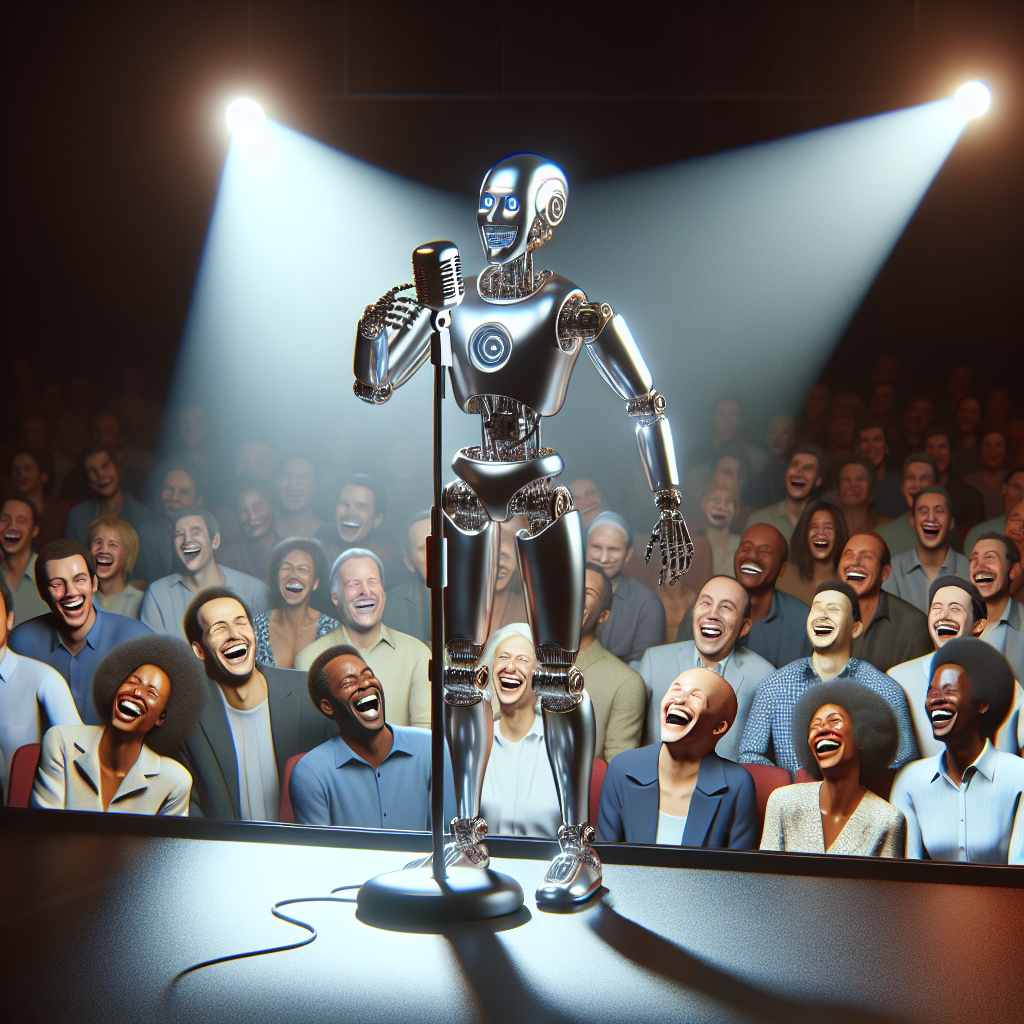The Rise of AI Comedians: How Artificial Intelligence is Making Us Laugh
Comedy has always been a uniquely human art form, reliant on the nuances of language, social context, and cultural references to provoke laughter. But in recent years, a new wave of comedians has emerged, ones that are not human at all. Artificial intelligence (AI) comedians are using machine learning algorithms to analyze humor patterns, generate jokes, and even perform stand-up routines. While the idea of AI comedians may seem far-fetched, the reality is that these digital comedians are already making audiences chuckle and raising important questions about the nature of comedy and creativity.
The concept of AI comedians first gained attention with the creation of the AI stand-up comedian, Data, by comedy writer and technologist Zachary Whitten. Data is a computer program that generates original jokes based on a database of over 10,000 jokes and performs them in a deadpan style reminiscent of famous comedians like Steven Wright. Data has performed at comedy clubs and festivals, and even participated in a comedy roast of Whitten himself. The success of Data sparked interest in using AI to create comedy, leading to the development of other AI comedians.
One of the most famous AI comedians is Botnik Studios, a collective of writers, artists, and developers who use machine learning algorithms to create humorous content. Botnik has generated everything from sitcom scripts to song lyrics, using AI to analyze patterns in existing content and generate new material. Their work has been featured in publications like The New Yorker and The Washington Post, and their AI-generated content has gone viral on social media. Botnik’s success has shown that AI can be a powerful tool for comedy, offering new perspectives and pushing the boundaries of creativity.
Another notable AI comedian is Liza Treyger, a chatbot created by the comedy club Carolines on Broadway. Liza Treyger is programmed to interact with audiences and deliver jokes in real-time, adapting her material based on audience reactions. While Liza Treyger is not a stand-up comedian in the traditional sense, she demonstrates the potential for AI to engage with audiences and create personalized comedy experiences. The success of Liza Treyger has inspired other comedy clubs and venues to experiment with AI performers, blurring the lines between human and machine comedy.
The rise of AI comedians has raised important questions about the nature of comedy and creativity. Can AI truly understand humor and generate original jokes, or is comedy inherently human? While AI comedians like Data and Botnik have been successful in generating laughs, critics argue that their humor lacks the depth and subtlety of human comedy. AI comedians rely on algorithms to analyze patterns and generate jokes, but they may struggle to capture the nuances of language and social context that make comedy so relatable and impactful.
Despite these challenges, AI comedians are making audiences laugh and challenging our perceptions of creativity. By using machine learning algorithms to analyze humor patterns and generate jokes, AI comedians are pushing the boundaries of comedy and exploring new ways to engage with audiences. While AI comedians may never replace human comedians, they offer a unique perspective on the art of comedy and inspire us to think differently about the creative process.
FAQs:
Q: Can AI comedians truly understand humor?
A: While AI comedians like Data and Botnik are able to generate jokes and make audiences laugh, critics argue that their humor lacks the depth and subtlety of human comedy. AI comedians rely on algorithms to analyze patterns and generate jokes, but they may struggle to capture the nuances of language and social context that make comedy so relatable and impactful.
Q: Are AI comedians a threat to human comedians?
A: AI comedians are not a direct threat to human comedians, as they offer a unique perspective on comedy and can coexist with human performers. While AI comedians may never replace human comedians, they provide a new platform for exploring creativity and engaging with audiences.
Q: How do AI comedians create jokes?
A: AI comedians like Data and Botnik use machine learning algorithms to analyze humor patterns in existing content and generate new jokes. These algorithms analyze language, structure, and tone to identify comedic elements and create original material.
Q: Can AI comedians perform stand-up routines?
A: Yes, AI comedians like Data have performed stand-up routines at comedy clubs and festivals. While AI comedians may lack the improvisational skills and emotional depth of human performers, they are able to deliver pre-written jokes and engage with audiences in a unique way.

